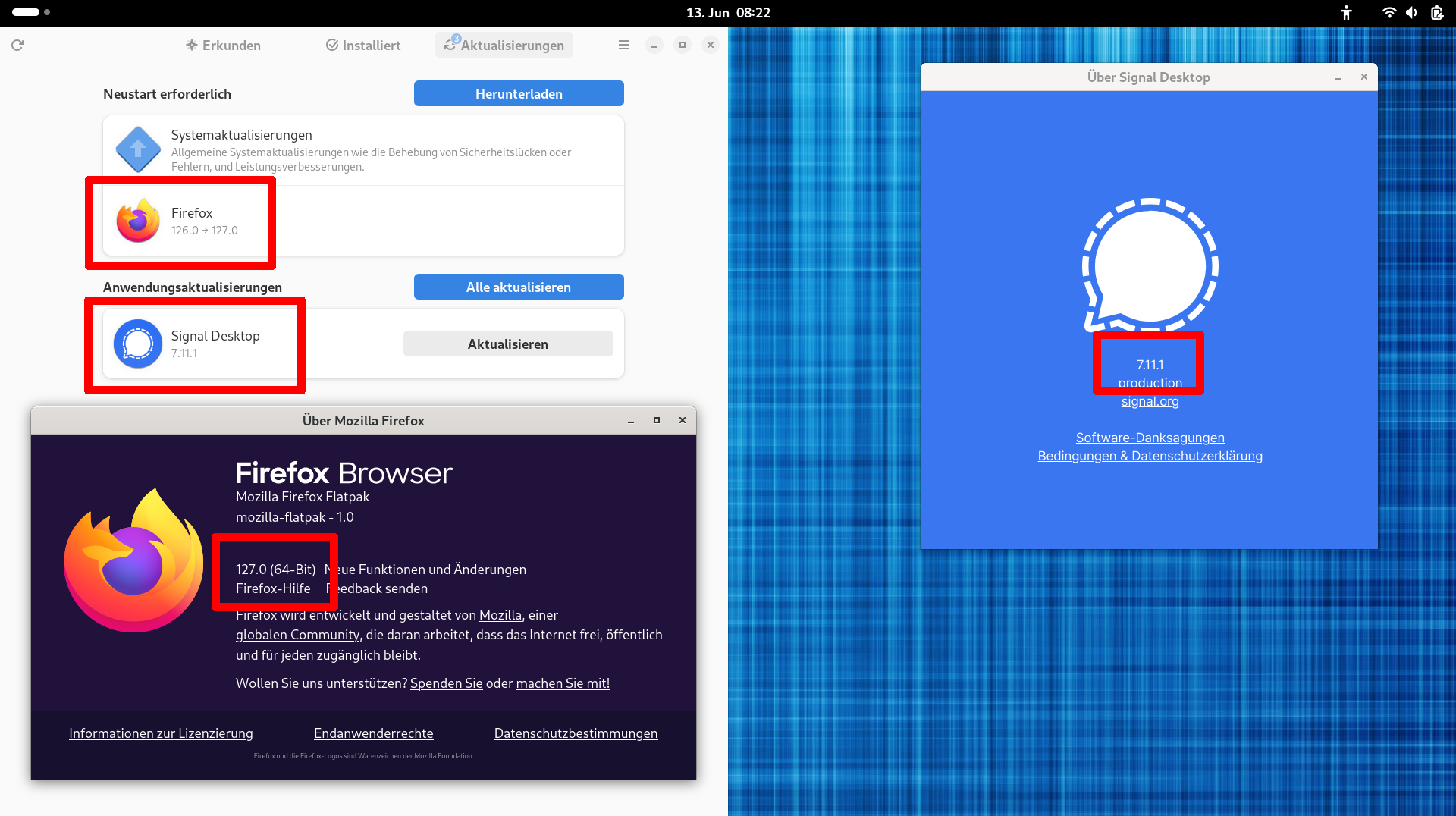Well for Firefox, the one getting updated is the native rpm version which is part of the standard Silverblue install while the one already updated is the flatpak version. The native version is just called 'Firefox' while the one from flatpak is called 'Firefox Web Browser' if I remember correctly. I have no idea why signal is showing up there. Maybe it is a bug.
Also next time a system update is shown in GNOME software, check using rpm-ostree status to see if any updated image is staged. If yes, then you don't have to bother with gnome software - when you shutdown or reboot, the update will automatically be applied.
